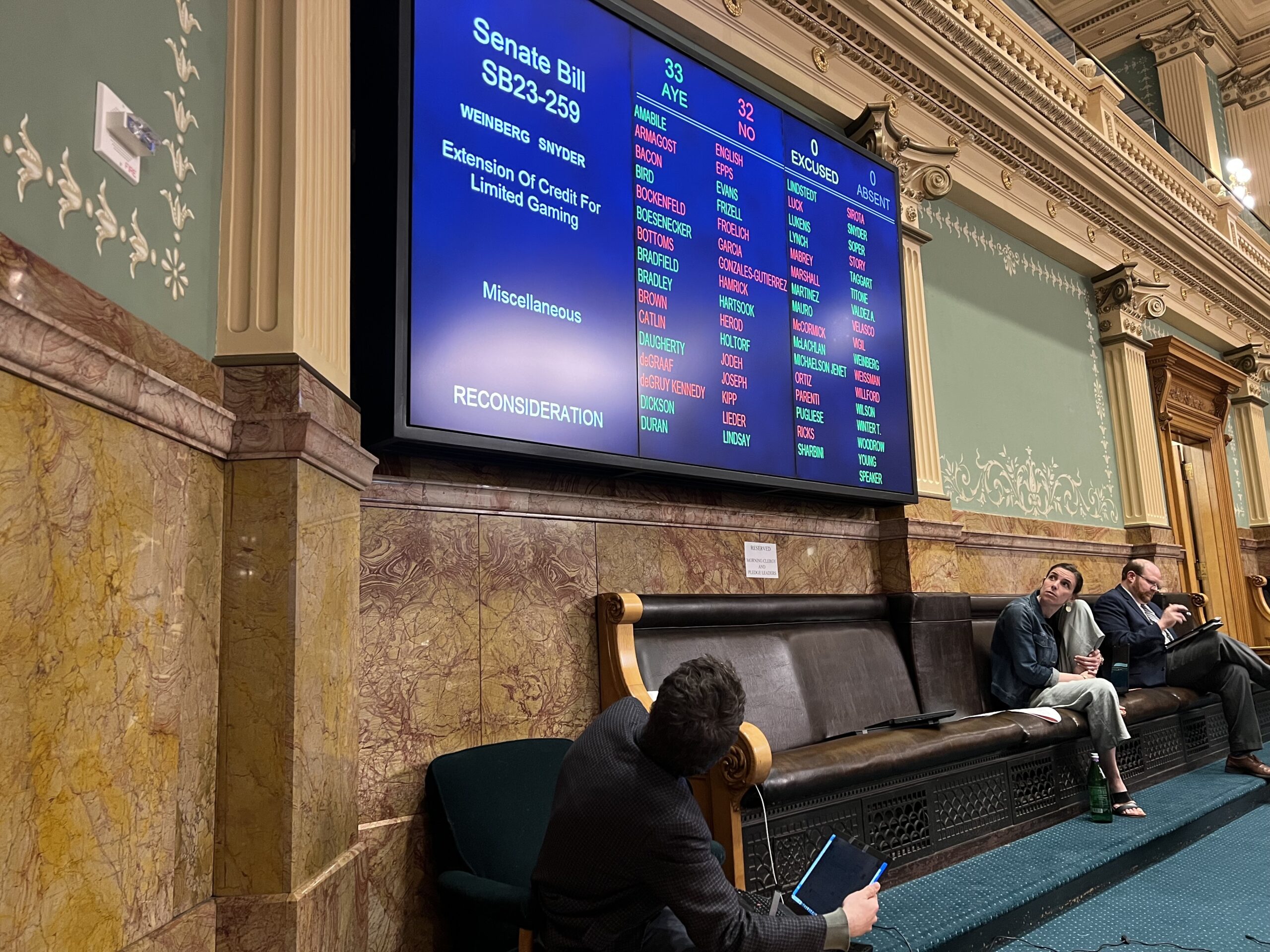
The apparent death, and subsequent resurrection, of a bill to allow casinos to loan gambling money to customers is provoking outrage from some members of the state legislature.
The unusual sequence of events late Saturday night led several lawmakers to criticize the process and, in some cases, their colleagues.
The bill in question is SB23-259, which would allow casinos to offer lines of credit. The proposal had bipartisan sponsors, but also bipartisan opposition.
Supporters had argued that having credit available would be a convenience for wealthy gamblers, allowing them to avoid flying with large amounts of cash or having to use ATMs.
“It’s really trying to attract folks that want to gamble … Gives them the opportunity ahead of time to apply for credit with the casino,” said Rep. Marc Snyder, a Democratic sponsor, describing it as a tourism bill. “It’s something that the casinos feel will help them to build and maintain (their) customer base.”
But critics said it would just make it easier for casinos to keep people gambling beyond what they can afford.
The disagreement came to a head late on Saturday, one of the last days of session. The bill had passed the Senate and needed one final vote of approval in the House — but, to the sponsors’ apparent surprise, it fell two votes short on the final count.
Among the doubters was Republican Rep. Richard Holtorf.
“If you’re having to borrow money to gamble that means you already spent the money you had to spend on gambling, and now you’re wanting to get in the game without any money,” Holtorf had said earlier in the week, adding that he was struggling with the bill and suggesting an amendment, which he later withdrew.
On Saturday, when the bill fell just short in a 31-34 vote, Holtorf was a no.
But just less than an hour later, Holtorf asked for the vote to be taken again — ‘reconsidered’ in the technical language of the legislature — saying that he “may have voted in error.” On this second try, both Holtorf and Republican Representatives Mary Bradfield and Matthew Soper switched their votes from no to yes, and the bill passed 33-32. Meanwhile, Rep. Jenny Willford switched from a “yes” to a “no.”
The reconsideration of the bill drew angry criticism from some Democrats, with Rep. Bob Marshall, Democrat of Douglas County, casting doubt on the idea that Holtorf had miscast a vote. “This is why people lose trust in our government,” he said. He was chastised by the House Speaker for criticizing a colleague directly, a breach of the chamber’s rules of decorum.
“He’s right,” Rep. Elisabeth Epps said from a nearby bench.
Holtorf declined to comment after the vote.
Online, other representatives joined the critics. Rep. Jennifer Parenti said that a sponsor of the bill — she didn’t say who — had been conferring with “special interests in the lobby” before returning to resurrect the bill.
“This is not just a pretty big breach of the House rules … but calls into question the integrity of the entire second vote,” she tweeted, adding: “The people of Colorado deserve better.”
Several progressive lawmakers used the moment to contrast the casino bill with proposals of their own that hadn’t advanced.
Rep. Javier Mabrey tweeted: “Legislation designed to help working families and the poor is getting killed left and right but a bill designed to make it easier for casinos to make money gets a second chance to pass after it died fairly. This is so ridiculous.”
Rep. David Ortiz added: “It was absolutely disgustingly outrageous!!!! Power and wealth get what power and wealth want.”
Also sponsoring the casino bill are Sen. Dylan Roberts, a Democrat, and Republicans Rep. Ron Weinberg and Sen. Mark Baisley.The bill’s next step is for the Senate to consider the House’s amendments. It would eventually require the signature of Gov. Jared Polis and would go into effect in August.
The bill would require casinos to determine whether a person is creditworthy and check other factors, such as whether they owe child support or restitution, before approving them for a line of credit. Customers would have to apply in advance, the sponsors said.
Editor’s note: This article was updated on May 7, 2023 to note additional lawmakers who changed their votes.
Related coverage
- With little sleep and lots of lawmaking, Colorado’s legislature is grinding into the home stretch
- Colorado could pay equal TABOR refunds next year — $661 a piece — but only if voters approve property tax changes
- Colorado politicians seek power to block social media users
- Colorado on the verge of banning ghost guns as it awaits governor’s signature








